In Virginia, '2nd Amendment sanctuaries' and new gun laws spur talk of GOP wave
Gun safety advocates are celebrating Virginia as a Democratic success story.
BLACKSBURG, Va. -- Virginia's Democrat-led state government is set to enact the toughest package of new gun laws in a generation this month. The backlash, in one of the nation's most pro-gun states, could impact the 2020 election.
Thirteen years after a gunman terrorized the campus of Virginia Tech, killing 32, and just a year after a gunman in Virginia Beach stormed a municipal building taking 12 lives, gun safety advocates are celebrating the legislation as vindication of years of public outcry and Democratic leadership.
"This is the final sea change of everything we've worked for and been advocating for," said Catherine Koebel, a Blacksburg native, mother of two and volunteer activist who's spent the last decade pleading with state lawmakers to do something about gun violence.
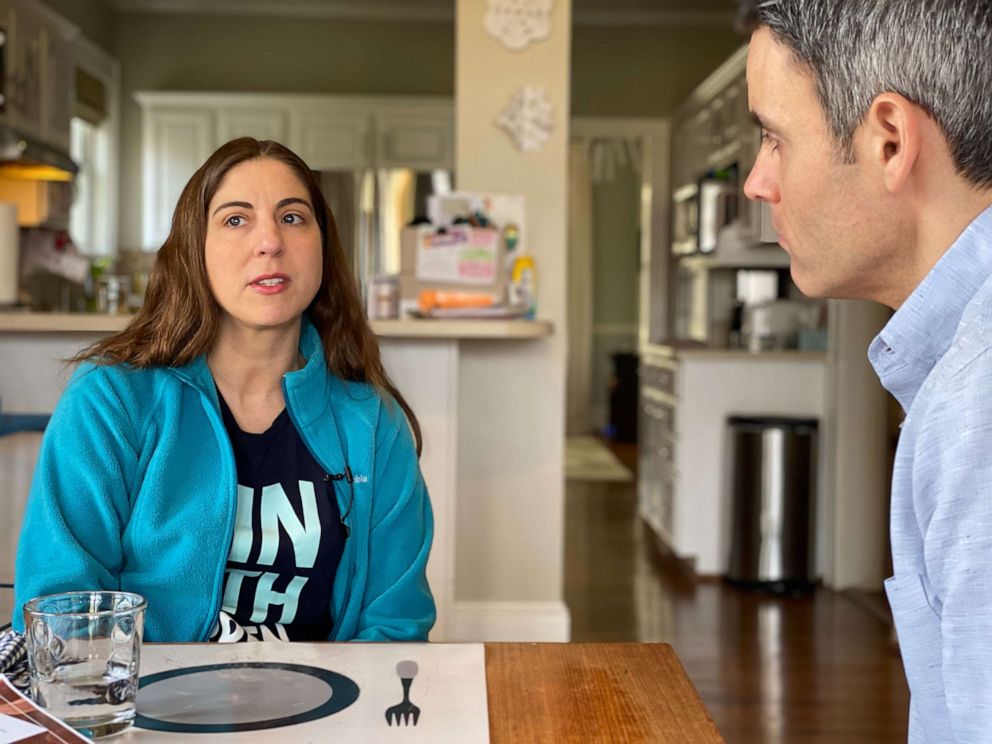
In the coming weeks, Gov. Ralph Northam, a Democrat, is expected to sign legislation placing new limits on handgun purchases; establish a "red flag" procedure to take firearms from people deemed a threat; allow localities to restrict firearms in public spaces; and expand background checks for gun sales.
"I would almost call it a 'blood price.' Like, we paid the price; we buried our dead; you owe us," Koebel said in an interview with ABC News at her Roanoke home. "You owe us these changes so that we can at least go to sleep at night knowing that it is a little less likely again."
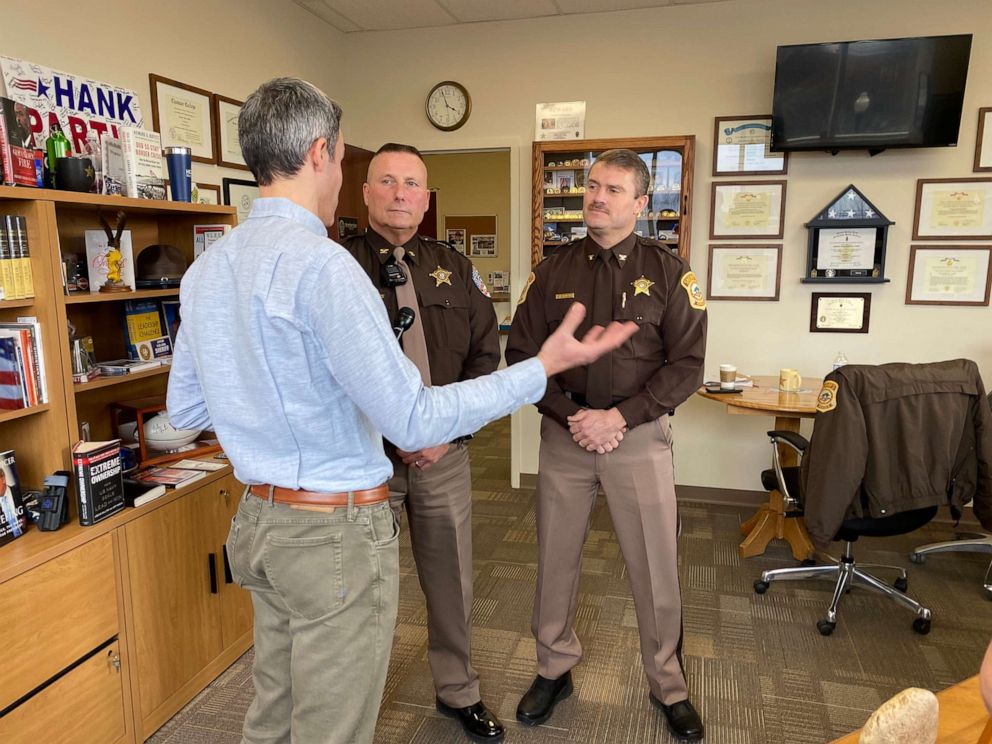
But the dramatic policy shift is not sitting well with many Virginia gun owners from across the political spectrum.
In January, more than 20,000 Virginians turned out in protest at the state capitol in Richmond. And, nearly every Virginia county has voted to declare itself a "Second Amendment sanctuary" for guns, in opposition to the new laws.
"It's basically a statement from a jurisdiction that passes sanctuary status that we do not like those bills," said Sheriff Hank Partin of Montgomery County, which is home to Virginia Tech. "A lot of folks feel like their defense mechanisms are being taken away from them."
Partin and neighboring Sheriff Richard Vaughan of Grayson County, both Republicans, won't say whether they'll refuse to enforce the state's new gun laws. But many gun owners are hoping they'll do just that.
"There are people that will say to me, 'sanctuary -- I will be safe. If you just pass this thing, they won't be able to prosecute us,'" said Chris Tuck, a criminal defense attorney in Blacksburg and former Republican chairman of the Montgomery County Board of Supervisors. "But we do not have the authority to say they wouldn't be prosecuted."
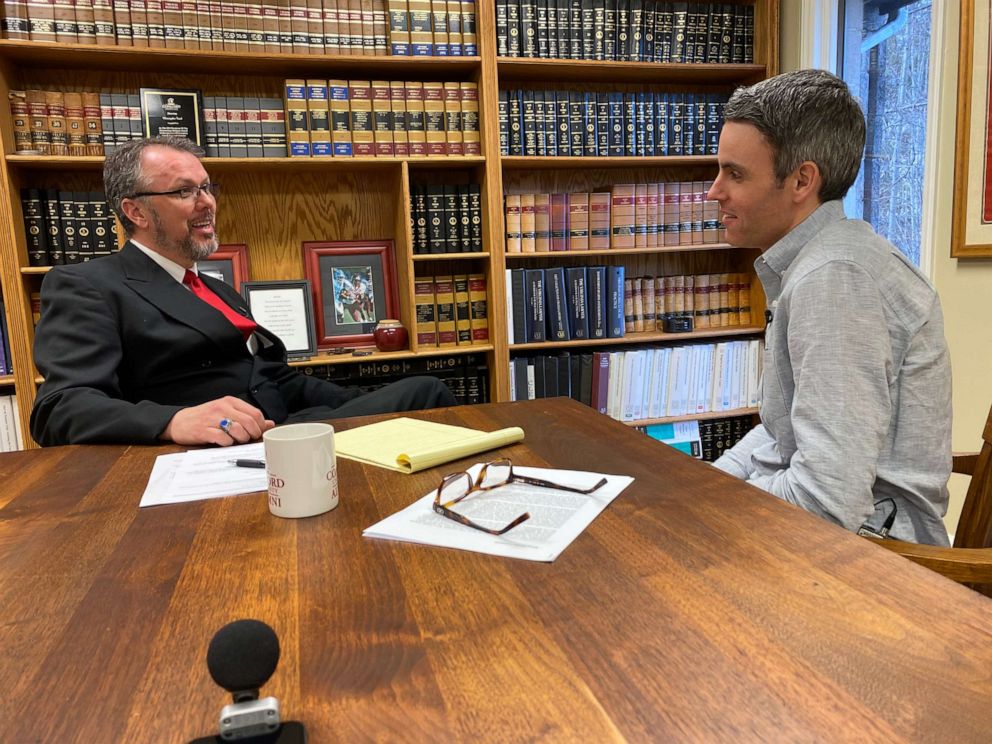
Tuck, who opposed "sanctuary status," brokered a compromise resolution in his final act as chairman late last year.
"I was going to be truthful with people, and unfortunately, in this day and time, it seems like it's acceptable for politicians not to be truthful," he said.
Montgomery County ultimately rejected the "sanctuary" label but declared support for the Second Amendment in a formal resolution passed by the board.
"The phrase 'awoken the sleeping giant' is probably the best way to describe the Second Amendment group now," said Mitchell Tyler, co-owner of SafeSide Tactical, a family-run gun shop in Roanoke, Virginia.
Tyler says sales of weapons are up "dramatically" over the last three months; the shop has signed up hundreds of concerned customers for town hall meetings on the new restrictions and sanctuary protections.
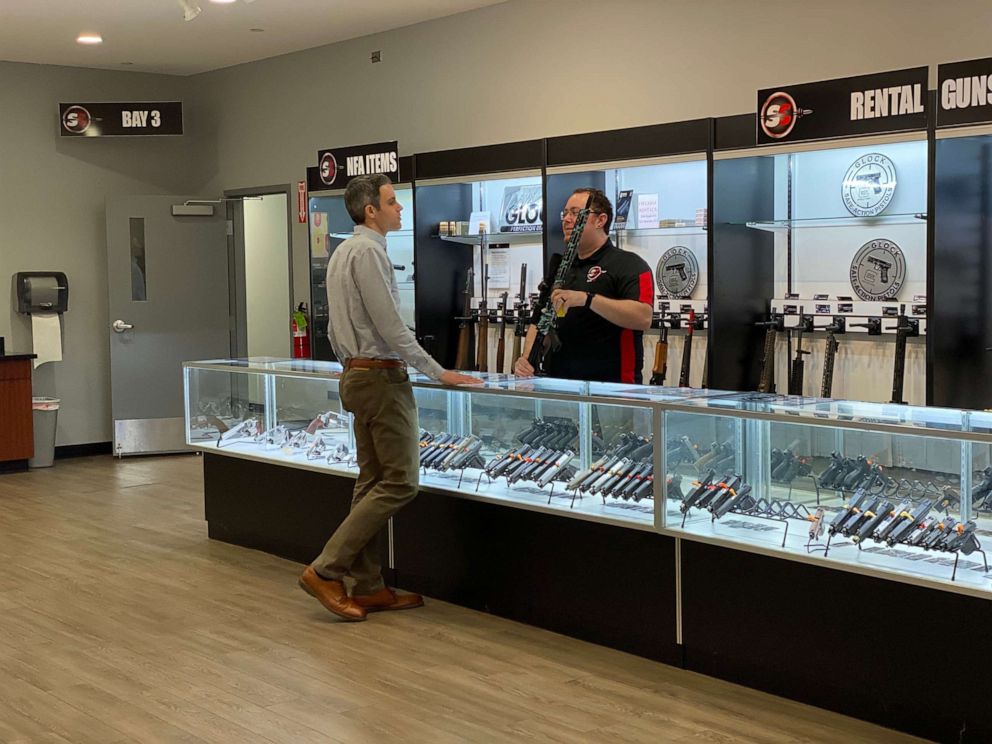
Gun rights advocates say the legislation, made possible by Democrats' takeover of the Virginia statehouse late last year for the first time in more than two decades, is certain to shakeup the 2020 campaign.
"Gun owners are a threat to politicians at the ballot box. That is where we're most dangerous," Tyler said. "Because of this groundswell in sanctuary cities and counties, I think you'll see Virginia go red this year in the presidential election."
Virginia has not backed a Republican for president since 2004, when President George W. Bush won a second term. Hillary Clinton won the state by 5 points over President Donald Trump in 2016.
But support for guns and opposition to gun laws does not fall clearly along party lines.
Guns are "a part of everyday life. People here grew up with guns," said Virginia Tech sophomore Josh Thompson, a Virginia native, who heads a student group advocating for concealed carry rights on campus. "So if you have such a big part of your life taken away, then that that's going to have some effect around the world where I'm from."
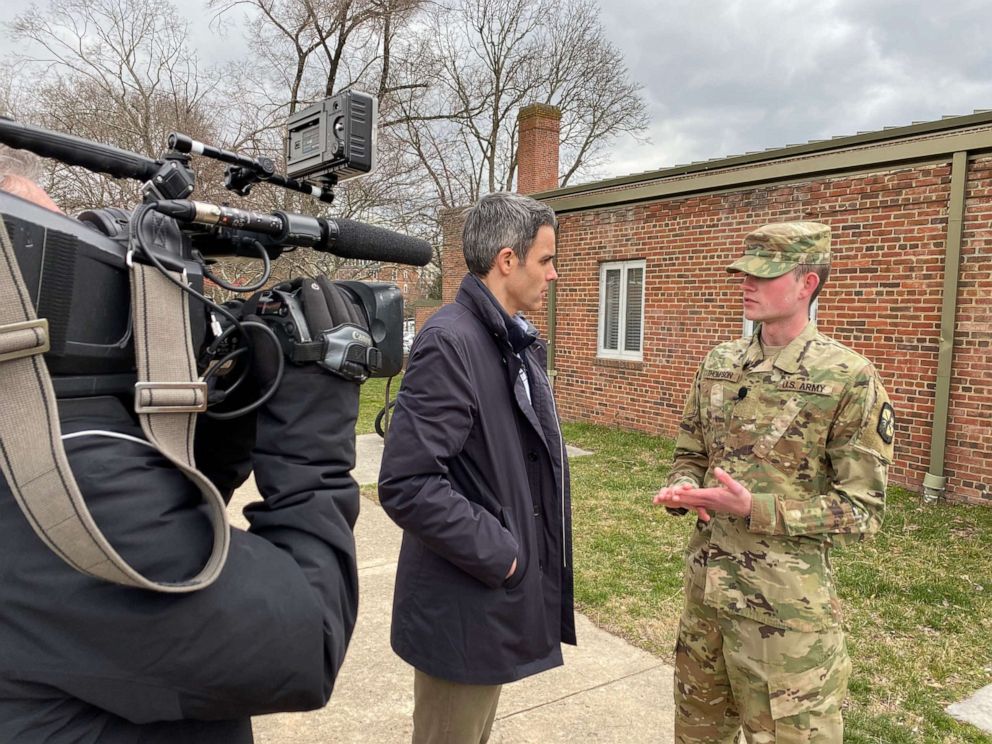
Just last month, a Democrat-sponsored proposal to ban the sale and possession of assault-style weapons in Virginia failed to advance from committee after several Democratic lawmakers raised concerns about the potential impact on otherwise law-abiding residents.
"Not every person who is trying to advocate for gun safety is saying, 'hey, we're going to take away every single gun you have,'" said Andrew Bender, a senior at Virginia Tech from Parkland, Florida.
Bender, who graduated from Marjory Stoneman Douglas High School one year before a gunman killed 17 of his peers there, is urging modest restrictions that he says can make everyone safer.
"You can still be a supporter of the Second Amendment, and I respect people to have those beliefs," Bender said. "But there are still measured steps that we can take, such as [closing] the gun show loophole and universal background checks that can help minimize the amount of guns that are in the hands of people who shouldn't have them."
Building consensus on guns has been painstaking, especially in states like Virginia with a stark urban-rural divide. Densely-populated suburbs around Washington, D.C., trend heavily Democratic -- and strongly support new gun laws -- while Virginia's rural areas remain loyal Republican territory, fiercely defensive of gun rights.
Koebel says Democrats in Virginia are showing that swift and forceful political action on gun control can be a winning message in swing states.
"Everybody's talking about, 'I want to be the next Virginia,'" she said. "You say, we're going to do gun control. Boom: we're getting gun control done. You do not back down from your promises. You make sure that you keep faith with your people."
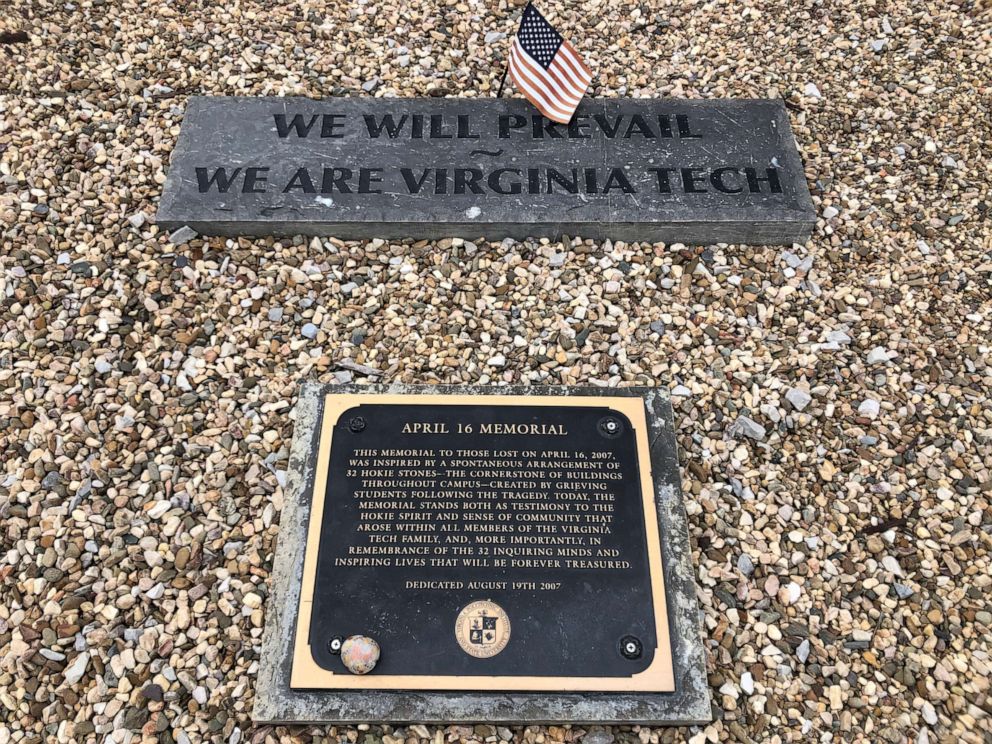
Gun rights advocates, such as Republican sheriffs Partin and Vaughan, predict intense political blow back.
"Elections have consequences, and if the Democrats get control and try to do something on the federal level to increase gun legislation, it's going to affect all of us," Vaughan said. "We're going to be back at square one."
Added Partin, "I do believe the giant's not sleeping any longer."
Meantime, many voters say they feel caught in the middle, hoping a deeply divided country can take even a small step toward compromise.
"I think either extreme position is not healthy. We have to be able to look at some reasonable compromises," said Tuck.
"This is America. I'm always optimistic. I'm an American first before I'm a Republican," he said. "I'm hopeful that we can sit down, take a step back from the rhetoric, and that we expect our leaders to be honest and hold them to it. And when they're not, we won't reelect them."
ABC News' Matthew Seyler and Jackie Yoo contributed to this report.




